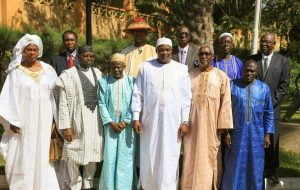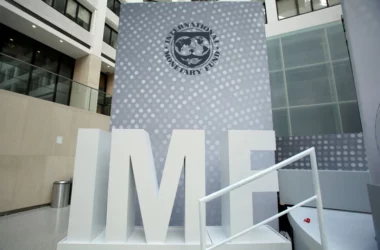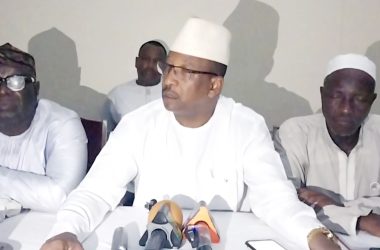
(JollofNews) – Debates concerning what is the ‘right justice’ for victims are familiar feature of a transitional justice, after a legacy of past human rights violations. But without the right resources, it may not be possible to deliver justice that meets the victims’ expectation as the pressure mounts on the government to make ends meet.
Therefore, it is necessary to distribute liabilities between parties at fault. Justice is the ultimate goal of the rule of law. From this perspective, it supports the notion that all criminal acts must be punished and victims’ injuries must be fairly remedied to promote peace and stability. The meaning of justice is highly contested as it differs from one individual to another, and from one social context to another. For the Gambia, it encompasses criminal accountability for the perpetrators of the human rights violations as well as accountability for international organisations that have breached the principles of good governance. Good governance requires economic actors to take special measures in preventing human right violations and mismanagement of public resources.
While I accept the point that transitional justice must be delivered in way that promotes reconciliation, national unity consideration should not be used as a mean to absolve the perpetrators from their criminal liabilities. In my view, the very point of justice is fairness, which involves striking the right balance between the need for punishment and the victims’ right for justice. Although there is no means of calculating the weight of the conflicting interests, the balancing’ task must take into account the available resources at hands in order to protect the interests of the community.
As resources are critical to proper administration of justice. This raises the question whether the Gambia government alone can deliver justice given its dire economic situation caused by colossal debts of more than one billion dollars left behind by the former regime. The size of the debts is relatively bigger than the size of its economy. What is striking, is that the creditors appeared to have turned blind eye to the government’s deplorable human rights records and mismanagements, while they pursue their guided financial interests. The way in which these loans were spent are yet to be accounted and documented for. But what is less obvious is the dire status of the Gambia’s economy constrained by increasing inflation.
With this regards, it is perfectly coherent to claim that Justice can only be served, if the creditors demonstrate sensitivity to Gambia’s situation by writing off its debts acquired under the autocratic regime. Seemingly, the creditors were aware of the fact the Gambia’s economy was one man bandwagon economy that benefited mostly the government, and its cronies at the expense of citizens’ interests. The financial reforms recommended by the IMF in its successive Article IV Consultation reports seem to have failed to convince the government to adopt principles of good governance, resulting in accumulation of unnecessary debts.
For Aristotle, substantive justice involves fair distribution of liabilities for the ‘collective good’ of the society. Drawing on this principle, I suggest the creditors must act justly to ensure that the Gambia’s economy is not stifled by its debt repayments. In this sense, restoration is a mending process where all parties pay their fair share towards the restoration of injuries and economic loss suffered during the repressive regime. It follows that ‘‘all principles of justice are principles of allocation’’.
Generally, restorative justice is regarded by many legal scholars and lawyers as an effective problem–solving model that brings together, the victims, the perpetrators, and the community as a whole to reflect on historical crimes, in order to finds way to repair the injuries and the losses to the victims, the model is undoubtedly sensitive to the needs of the population affected by serious human rights violations’. Although it pays particular reference to victim right to a fair remedy, what constitutes of a fair remedy seems elusive. The remedy awards to victims is always dictated by available resources and the effectiveness of the compensation scheme in place.
Importantly, the government must not adopt lukewarm approach in addressing victims concerns to maintain public confident in the justice system. Of course, dealing with the acts of the prior regime can cause political tension, and even sometimes fist throwing moments, as politicians try to figure out the best way to serve justice efficiently. Nonetheless, justice can be instrumentally justified once the citizens are made aware of the benefits of the mechanism in place to deliver it. It is true that a society that attempts to come to terms with a legacy of large-scale past abuse is always marred by tensions. That tend to have profound effects on the stability of the nation. At times, these tensions are better resolved by repentance and reconciliation to promote social harmony. Similar proposition is espoused by Hart in The Concept of Law as he said that the criminal liabilities are better accommodated through restorative justice.
On the other hand, it is unclear whether a reconciliation models have impending deterrence effects on the behaviour of perpetrators. Certainly, they have not deterred the perpetration of heinous crimes committed in Ivory Coast, Kenya, Liberia, Sierra Leone, and The Gambia. The Kenyan National Dialogue and Reconciliation Process offers a telling example of how a reconciliation mechanism failed to provide justice for the victims of post-election violence, because there was no ‘goodwill’ on the part of one of the state’s organ. As a consequence the ICC had to intervene in order to provide at least a hope for justice for the victims. Such failings cast doubt on the effectiveness of reconciliation mechanism in providing the much needed justice.
In contrast, the European perspective of international justice tends to favour punitive justice. This was the case in Nuremberg and as well as Yugoslavia. It seems right to infer that international justice is relative to social context, particularly the economic context. It is not universally applicable as standard of justice depends on geopolitical and economic interest of the powerful nations. By implication, the victims in the Global South may not be provided with the justice they deserved as opposed to those in the West. This captures the way in which the world economy and legal order are structured. To cure such imbalances African leaders must adhere to strict application of the global governance doctrine. In this sense, if multinational corporations and other economic actors breached the global governance principles, by aiding repressive regimes that committed serious human rights violations, either consciously or unconsciously. The must be compelled to pay their fair share in the administration of justice for those victims affected. Fairness is a fundamental tenant of justice.
There can be no doubt that justice entails fair and proportional allocation of liabilities between parties. With this regard, I submit, the international corporations and economic actors that were complicit in the former government wrong doings must be held accountable. Although consideration to popular sovereignty might have justified their inaction, but as agent of global governance they are required to apply measures that are geared to prevent serious human rights violations. Given the fact that it cannot be said if this had happened. In my view they are obliged to compensate for these failings, at the very least, they are morally bound to facilitate the process of restoration.
It is becoming increasingly clear that non-state actors have a universal duty to protect human rights, while pursuing their business objectives. Moreover, the internationalisation of individual criminal accountability has heralded the focus of human right protection from state to community’s responsibility. It is right to say contemporary view on human rights protection transcends the borders of states.
In conclusion, it is a glaring fact that ordinary Gambians’ interests were marginalised under the autocratic regime as they were less engaged in the decision making process. Therefore, the debts incurred cannot be based on the informed consent of citizens. The human rights violations and mismanagements should have served as alarm bells for the international organisations, so as to employ measures necessary to uphold good governance principles. In light of these shortcomings, it is more plausible to suggest that the debts incurred deserve to be written off for the interest of justice and fairness. Such decisive measures will greatly help the new government to deliver ‘substantive justice’ for the victims.
Forward with the Gambia!
Solomon Demba













https://www.google.co.uk/url?sa=t&source=web&cd=1&ved=0ahUKEwjirpKCuK_SAhWiKMAKHR3ZCegQFggKMAA&url=http%3A%2F%2Fthepoint.gm%2Fafrica%2Fgambia%2Farticle%2Fhomosexuality-not-an-issue-in-gambia-says-president-barrow&usg=AFQjCNGpyJ_V5dle6nwsf9mcD8yvWz7R3A&sig2=IHzza9XPk3bNc4_ZD29tPg
European union is a donor to the Gambia
please note the aid withdrawn was not credit or loans
The European Union is a donor to the Gambia. The aid withdrawn cannot be classified as credit or loans.There are international organisations that offered credit to the Gambia requiring repayment.
Peace,
EU aid has attachments, the link you posted is one of them. The Gambia is going to become the gay (homosexual) capital of Africa. The Gambia jump out of the frying pan into the fire.
It is true that the conditions attached to these Debts are largely detrimental to our economic growth and development, and that of any developing country in world. For example, the IMF and their Structural Adjustment Programs that have been imposed on these countries as a policy to continue to pay their Debts to qualified for new loans and get deeper in Debts. Imagine these countries were only able to pay the interests on those Debts, and i wonder if the principal will ever be paid off by these countries. Monies that could have been use for important development.
I also wonder if we will be able to developed agriculture to its full potential? For example, look at the history of the Green Revolution and Mosanto with their so call agricultural development. The agricultural technologies provided never help the majority poor farmers, but render them landless and or pushed them into deeper poverty. All these can change if law-makers in these developing countries can recommend and put in place effective policies that are much more favorable to their economies.